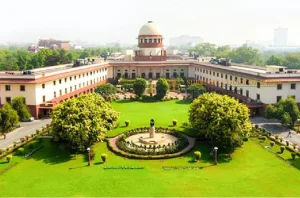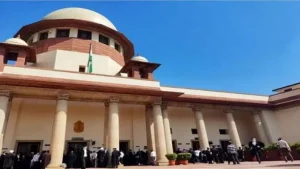

Why Are Public Enterprises Unable to Compete With the Private Sector? The Supreme Court Weighs in.
- /
- Articles and Blogposts /
- Why Are Public Enterprises Unable to Compete With the Private Sector? The Supreme Court Weighs in.
The recent Supreme Court judgment in Caretel Infotec. Vs. Hindustan Petroleum Corporation Limited (Civil Appeal No. 3588 OF 2019) highlighted the problem of excessive litigation challenging public sector tenders. The court said that litigants are filing writ petitions against executive action as a matter of routine, which in turn affects the efficiency of the public sector contracts and tenders. The Supreme Court rightly pointed out that this leads to public enterprises being unable to compete with private enterprises.
Public Sector Undertakings as ‘State under Article 12’
The High Courts have the power to issue writs under Article 226 of the Indian Constitution in order to maintain checks and balances on executive actions. Public sector undertakings are considered to be ‘State’ under Article 12 of the Indian Constitution and consequently, High Courts have the power of judicial review over them. Private sector contracts however, are governed by the law of contracts and provide less scope for judicial intervention. Due to this reason, the enforceability of private contracts is much higher in comparison to contracts of public enterprises as the latter are inherently bound by the principles of natural justice, non-discrimination, and fairness, apart from standard commercial considerations like efficiency and suitability.
Facts
The Supreme Court in the case of Caretel Infotec. remarked that every small discrepancy in a contract cannot warrant a writ petition being filed in the High Court or in the Supreme Court. In this case, a call centre company had applied for a tender floated by Hindustan Petroleum Corporation Limited (HPCL) and had to disclose whether it was on the holiday list/ banned or backlisted on the day it applied for the tender. Prior to this tender, this call centre company had received a show cause notice from the Ministry of Agriculture with respect to a different tender asking it to show cause why proceedings of blacklisting shouldn’t be initiated against it for submitting false documents. On the day of applying for the HPCL tender the company did not mention the previous show cause notice and filled out standard undertaking forms. Other companies that bid for the same tender contended that Caretel Infotec. should have disclosed the prior show cause notice.
The Court held that nowhere in the forms was there a provision for such disclosures being mandated and mere issue of show cause notice does not necessarily mean that the company was black listed. The Court was dismayed that so many public sector contracts were coming under close scrutiny through writs before High Courts on a regular basis. Further, the court said that Constitutional Courts should tread with caution and not interfere with administrative decisions by substituting their view with that of the administrative bodies. The remedy available in the form of writ is not intended to replace the ordinary recourse available under the Code of Civil Procedure but to correct the arbitrary decisions of the administrative authority.
Analysis
While the intention behind writs is to ensure checks and balances in the functioning of the state and its instrumentalities, the invocation of writ jurisdiction routinely to challenge tenders does not further this intention and adds to court congestion. It also adversely affects the ease of doing business with the public sector. The selection of suitable contactors and vendors are key in ensuring the success of a business but the long-drawn litigation around this process seriously hampers the competitiveness of public enterprises. Private enterprises gain an edge in this scenario since they are not subject to the same standards.
The threat of litigation also affects the functioning of public enterprises because their employees are constantly worried about being dragged to court for every step they take. They tread with caution, which slows them down and prevents them from working to their full potential. The Supreme Court Annual Report, 2017- 18 states that there are about 32,51,326 civil writ petitions as of June 2018 related to public sector undertakings pending across all High Courts including writ petitions. According to the Economic Survey 2017-18, projects worth Rs. 52,000 crores under infrastructure related ministries like road, railways, mines, power, shipping and petroleum are stayed and stuck in litigation. Not only is this a colossal waste of public money, it also affects the commercial stability of public enterprises. If cases related to the enforcement of contacts or tenders get mired in litigation, financial and human resources need to be diverted to handling the litigation, inevitably affecting the commercial functioning of the public enterprise.
The High Courts should implement this judgment and ensure that writ petitions are not filed as a consequential next step to unfavorable decisions by tendering authorities.
The views expressed in this article are solely those of the author’s and they do not represent the views of DAKSH.

Amulya Ashwathappa
RECENT ARTICLES


Lessons for Judiciary from Space Sector

The missing piece in India’s reform story—a strong tribunal system

Fast-track courts may not be the cure

-
Rule of Law ProjectRule of Law Project
-
Access to Justice SurveyAccess to Justice Survey
-
BlogBlog
-
Contact UsContact Us
-
Statistics and ReportsStatistics and Reports
© 2021 DAKSH India. All rights reserved
Powered by Oy Media Solutions
Designed by GGWP Design